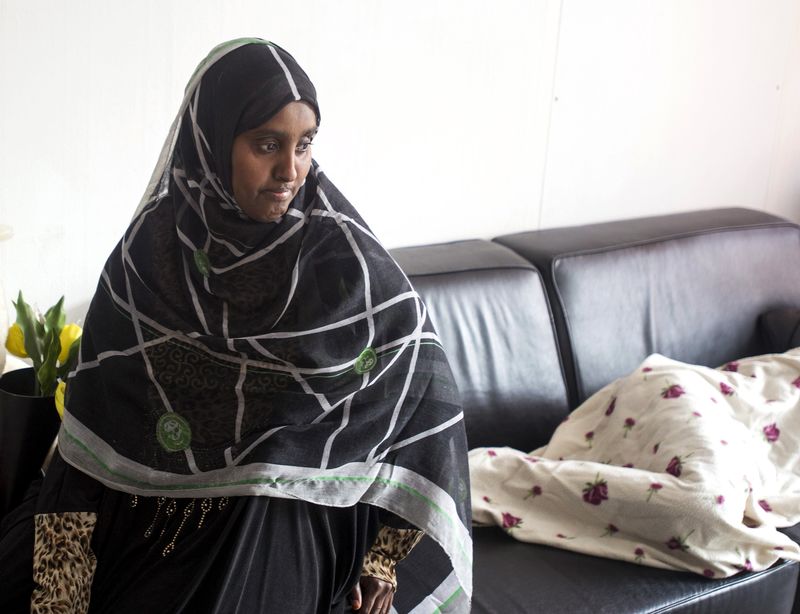By Yoruk Bahceli
AMSTERDAM (Reuters) - As Europe grapples with its biggest wave of migration since World War Two, the Netherlands is about to toughen its asylum policy by cutting off food and shelter for people who fail to qualify as refugees.
Failed asylum seekers would be limited to "a few weeks'" shelter after being turned down, if they do not agree to return home. They would then either be deported or sent away to fend for themselves.
From November, the center-right coalition of Prime Minister Mark Rutte, which competes for votes with the popular, anti-immigration party of Geert Wilders, wants to close 30 regional "bed, bath and bread" shelters where asylum seekers have been able till now to get help on the basis of need.
Under the plan, six national centers applying the stricter guidelines would provide only to people who agree to leave.
The proposal prompted a clash between Rutte's ruling right-wing Liberals and their junior coalition partner, Labour, that nearly toppled the government in April.
On Friday, the U.N.'s Committee on the Elimination of Racial Discrimination added to outside criticism of the Dutch policy, saying basic needs of migrants should be provided unconditionally.
"As long as they are in the Netherlands, they have to enjoy minimum standards of living," said Ion Diaconu, who helped write the U.N. report.
But Rutte responded on Friday that it would be "crazy" to offer permanent shelter to people who refused to leave. "We are talking about the group that can go back, whose governments would take them back, but they don't want to go back," he said.
Local governments now operating the sites with national funding, are challenging the move in the courts, fearing it will lead to a surge in homelessness if they are obliged to close shelters in November. Some mayors have refused, saying they will seek alternative funding.
A complaint was lodged with the 47-nation Council of Europe, the continent's leading human rights forum, which admonished the Netherlands last year for placing asylum seekers in administrative detention and leaving many "irregular immigrants" in legal limbo and destitution.
"Throwing people out on the street leads to deaths. The use of drugs and human trafficking become inevitable," said Geesje Werkman at Kerk in Actie, a church group that jointly filed the complaint to the Council.
"LIKE IN THE JUNGLE"
If implemented, the new measure would cement the position of the Netherlands - which took in hundreds of thousands of migrants from Morocco and Turkey in the 1960s and 1970s before tightening policy over the past decade - as one of the toughest destinations in Europe for migrants.
The country of 17 million people has become less accommodating amid a public backlash over Muslim immigration and increasing stresses on the social welfare system. It is home to an estimated 10,000-20,000 illegal or irregular migrants.
Among its European peers, only Britain and Finland have similarly strict policies. Denmark and Sweden, which also have strong anti-immigration parties, continue to provide support to rejected asylum seekers, reducing the level only if they are considered uncooperative.
Somali asylum seeker Rahima, 39, who says she fled Mogadishu in 2009 to escape a forced marriage under the Islamist militants of al Shabaab, is one of those who fears the impact of the new rules: "The street is horrible. It's like you're in the jungle and you don't know where you're going."
Rahima applied for asylum in the Netherlands, but the Dutch authorities do not believe she is from Mogadishu. If the new policy is carried out, she worries about deportation.
"I'll go back to Somalia and al Shabaab will kill me, then they'll have their proof," she said, speaking from an Amsterdam flat where she squats with 10 other African women.
The surge in desperate people seeking refuge from conflict or poverty in the Middle East, Africa and Asia has thrown the European Union into crisis, stirring social tensions and testing the resources and solidarity of the 28-nation bloc.

The Netherlands is the eighth-largest destination for asylum seekers, accounting for 4 percent of total arrivals in 2014. Total applications last year rose 87 percent to 24,535.